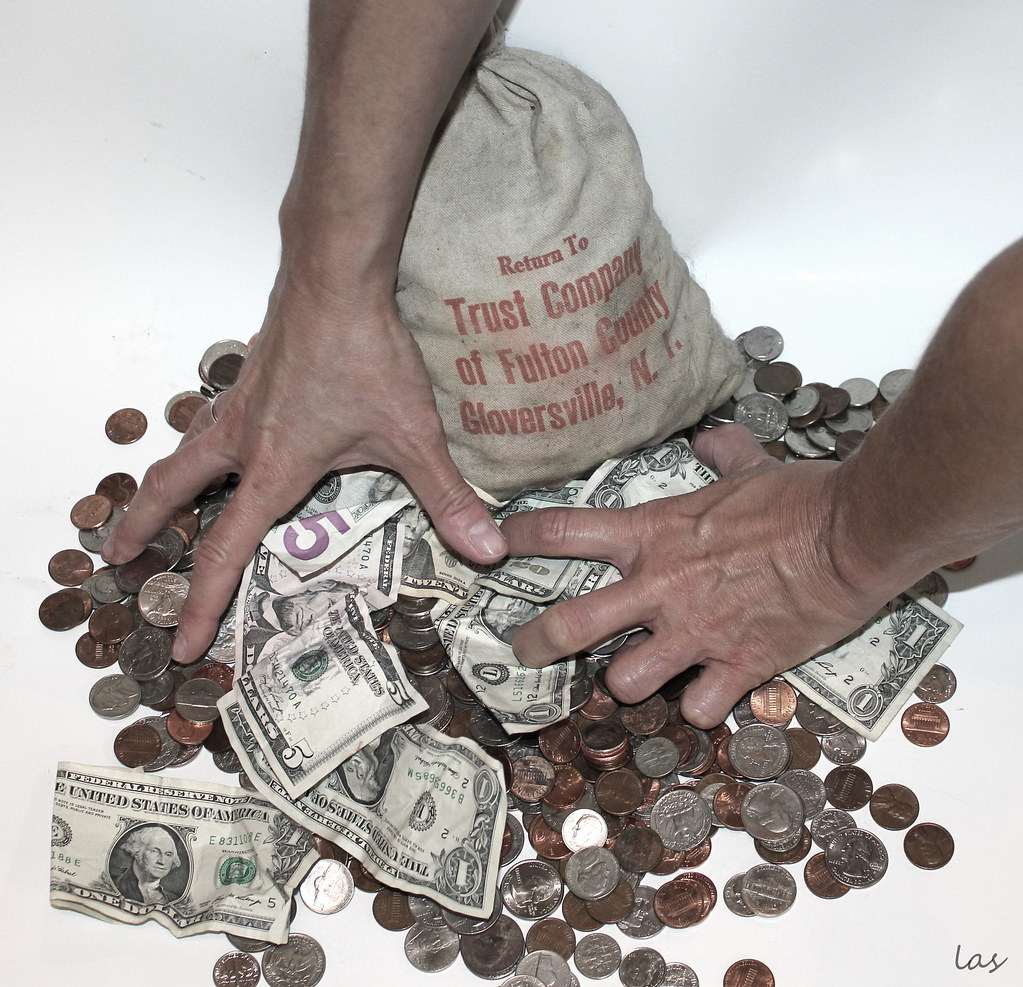52 week money savings challenge
Are you wondering what the 52 week money savings challenge is? For those trying to save more money in 2021, the 52 week Money Challenge is an easy and effective way to stay on track.
By the end of the year, you will most likely have an additional $1,378 to increase your emergency savings or reach a savings goal.
Take a little time now to figure out precisely what you want to save so you’ll be more motivated to stay in class throughout the year. Once savings goals are set, jump in and start saving with the 52-week challenge.
What is the 52 week money challenge?
With the 52-week money challenge, you should deposit an increasing amount of money each week for a year.
Match each week’s savings amount to the number of the week in your challenge. In other words, you save $1 the very first week, $2 the second week, $3 the 3rd week, and so on until you put away $52 in week 52.
See also: Top 10 amazing facts about how money is made today.
What to do with your savings from this 52 week money challenge?
Once you have your savings from the challenge, here’s what you can do:

For short-term/mid-term, or long-term financial goals
For example, saving money for a trip, a side hustle, a move, new furniture, starting school, or anything else you need a good chunk of change for. This could also be used for other financial goals, such as a down payment on your home, a contribution to your retirement account, a contribution to your child’s college account, etc.
Increase your emergency funds
Emergency savings are essential when life throws you a curveball.
The money you save through this challenge can fund last-minute emergency travel, doctor’s offices or emergency rooms, or even contribute to rent or mortgage payments.
Save some money in your sinking fund.
Your sinking fund is very essentially a fund for the expenses you know will come up in the near future, like regular automobile repairs and general home repairs.
Always take a look at upcoming events, trips, and repairs that you know are coming up. By doing so, you can establish a baseline for your sinking fund.
52 week money savings challenge to Pay off debt
Accelerate your debt repayment and reduce the interest you pay in the long run by putting a healthy portion of your money toward a student, credit card, or medical debt you may have accumulated.
Once your high-interest debt is all paid off, you’ll have even more money to reach your savings goals.
Remember to invest in shares and the stock market.
A great way to put the money you save to work for you to continue to grow is to invest in the stock market for the long term. Investing is essentially how you make your money grow. However, it’s important to have clear goals and know your risk tolerance.
Do something fun
It could be girls traveling, family vacations, or much-needed “me time” you’ve been dreaming of. The money you save could even be used for an item you really wanted to buy from your wish list.
The Benefits of the 52 week savings challenge.

You become a consistent saver.
This money-saving challenge is a great way to get in the habit of saving consistently, especially if you have trouble saving money.
You will be able to watch your balance grow over time and build up a decently small amount of money.
Challenge yourself to save even more money
Challenge yourself to double or triple your weekly deposits to get more balances and save more once you get going. Alternatively, every time you have some money left over, put it towards your savings challenge.
You will be motivated to achieve even greater financial goals.
The 52 week money challenge progress will motivate you to go bigger and better as you gain momentum with this savings challenge.
Sometimes a little boost from a money challenge can flow into all sorts of ways in which you can improve your personal finances.
You may want to save more during the year or not have enough extra money available for the regular challenge.
If you stick with this challenge all year, you’ll save a total of $1,378.
| WEEK NUMBER | WEEKLY DEPOSIT | TOTAL SAVINGS |
|---|---|---|
| Week 1 | $1 | $1 |
| Week 2 | $2 | $3 |
| Week 3 | $3 | $6 |
| Week 4 | $4 | $10 |
| Week 5 | $5 | $15 |
| Week 6 | $6 | $21 |
| Week 7 | $7 | $28 |
| Week 8 | $8 | $36 |
| Week 9 | $9 | $45 |
| Week 10 | $10 | $55 |
| Week 11 | $11 | $66 |
| Week 12 | $12 | $78 |
| Week 13 | $13 | $91 |
| Week 14 | $14 | $105 |
| Week 15 | $15 | $120 |
| Week 16 | $16 | $136 |
| Week 17 | $17 | $153 |
| Week 18 | $18 | $171 |
| Week 19 | $19 | $190 |
| Week 20 | $20 | $210 |
| Week 21 | $21 | $231 |
| Week 22 | $22 | $253 |
| Week 23 | $23 | $276 |
| Week 24 | $24 | $300 |
| Week 25 | $25 | $325 |
| Week 26 | $26 | $351 |
| Week 27 | $27 | $378 |
| Week 28 | $28 | $406 |
| Week 29 | $29 | $435 |
| Week 30 | $30 | $465 |
| Week 31 | $31 | $496 |
| Week 32 | $32 | $528 |
| Week 33 | $33 | $561 |
| Week 34 | $34 | $595 |
| Week 35 | $35 | $630 |
| Week 36 | $36 | $666 |
| Week 37 | $37 | $703 |
| Week 38 | $38 | $741 |
| Week 39 | $39 | $780 |
| Week 40 | $40 | $820 |
| Week 41 | $41 | $861 |
| Week 42 | $42 | $903 |
| Week 43 | $43 | $946 |
| Week 44 | $44 | $990 |
| Week 45 | $45 | $1,035 |
| Week 46 | $46 | $1,081 |
| Week 47 | $47 | $1,128 |
| Week 48 | $48 | $1,176 |
| Week 49 | $49 | $1,225 |
| Week 50 | $50 | $1,275 |
| Week 51 | $51 | $1,326 |
| Week 52 | $52 | $1,378 |
How to start the 52 week savings challenge.
First, you need a nice place to keep your savings.
A simple piggy bank may work for everyone, not for you. Everyone has the cash to deposit every week. Having your savings in such an affordable place can entice you to get involved before the end of the challenge.
Consider opening a high-yield savings account and transfer challenge money into it each week. Not only can the savings account curb the spending push, but it can also help you earn a little more money during the year through interest earnings.
Suppose you want to make it really easy, set up your bank to automatically transfer money to your new savings account, or use an automated savings app like Qapital.
If you never see it, there’s no chance you’ll miss the money before it goes into savings.
Tailor the challenge to your essential needs
One way to always improve your chances of sticking with the challenge throughout the 52-week period is to customize the process to fit your needs. The details are not as important as actually succeeding in accumulating your savings by the end of the year.
Saving money in incremental steps over the course of a calendar year can be difficult, especially since your spending is likely to increase in December.
If you’re worried about your savings dropping during the vacations, try turning your money challenge around. Instead, put away $52 the first week, $51 the second, and so on until you only owe $1 the last week of December.
See also: Money quotes funny – Top 50 funny money quotes – Forbes.
You may be expecting a bonus or cash gift for your birthday at some point during the year. Use those extra sums to give yourself a head start during the more challenging weeks, or try to catch up with your savings if you’ve fallen way behind.
Rather than just keeping up with changing deposits, you may want to save the same amount each week until you reach your end-of-the-year goal.
This is very helpful if you want to go the automated route, as you can set the same amount each week or payment cycle. If you put $26.50 into your savings each week, you’ll accumulate the same $1,378 as you would in the regular challenge.
Perhaps you have more ambitious goals. Double the challenge by saving $2 in week 1, $4 in week 2, and $6 in week 3 until you save $104 in week 52 for a total of $2,756.
There are countless versions of the challenge where you can find templates for the internet.
However, you are not afraid to take matters into your own hands. The best method is what will help you reach your goal by the end of the year.
52 week money savings challenge
How to stay on track in your savings challenge
Try to set reminders and benchmarks for yourself to make sure you don’t stop in the middle of your challenge.
Think of an end goal before you start saving, whether it’s a down payment, your emergency fund, a vacation budget, or another goal.
Having something positive to work towards will keep you motivated throughout the year.
Keep a regular reminder on your calendar to keep you on track. Weekly notifications can ensure that the challenge stays on track.
See: Can Money Buy Happiness? 5 Secrets to happiness Money Buy.
Suppose you need extra help staying motivated; set smaller benchmarks for yourself throughout the year. For example, for every 13 weeks, you successfully save (four times a year), reward yourself for keeping up.
As with any New Year’s resolution, having someone hold you accountable can also be a great motivator for your general success.
If possible, you can also ask your family and friends to take the challenge and check in with each other monthly to make sure you’re keeping up with your deposits.
And after you’ve fully reached your savings goal at the end of 52 weeks, don’t stop building momentum.
You’ve already accomplished the most challenging part – getting started. Start another 52-week money challenge or challenge yourself to a new goal for the following year.
Conclusion
The 52 week challenge is a fantastic way to save money. You will have the opportunity to improve your attitude toward money, develop good money management habits, and lay the foundation for how quickly you achieve your financial goals.
Over time and with commitment, your account balance will grow, and you will gain financial security. It will be a win-win experience for you!
Reference: Clevergirlfinance.com and Bankrate.com





